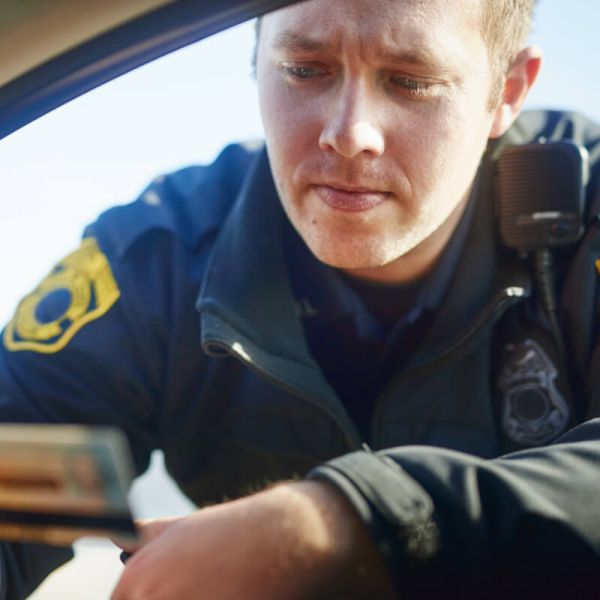Finding A DUI Lawyer in Georgia
If you or a loved one has been charged with a DUI in Georgia, getting one of the best DUI lawyers in Georgia should be your first step. Georgia has some very strict DUI laws, so beating a drunk driving charge is crucial to keeping your driver’s license as well as keeping a clean criminal record. Drunk Driving Defense has some of the highest-rated DUI lawyers in Georgia on our team, so call today to find the best Georgia DUI lawyer for your specific case.
When charged with a DUI in Georgia, it is important to understand the DUI laws in Georgia. A Georgia DUI conviction can have severe consequences, including fines, jail time, and a permanent criminal record. Let’s start by exploring the rate of DUI arrests in Georgia over the past few years and then discover how getting a Georgia DUI lawyer can help you beat a DUI charge.

DUI vs DWI in Georgia
In the state of Georgia, the terms DUI (Driving Under the Influence) and DWI (Driving While Intoxicated/Impaired) are often thought to refer to similar offenses. However, it is important to note that within Georgia’s legal framework, the official term used is DUI, and DWI is not commonly used in the state’s legal terminology.
The legal implications of a DUI in Georgia are severe and can include fines, imprisonment, community service, DUI school, probation, and license suspension or revocation. Aggravating factors, such as a high BAC, repeat offenses, or causing an accident with injuries or fatalities, can increase the severity of these penalties.
DUI in Georgia
Under Georgia law, DUI is defined as operating a motor vehicle while being under the influence of alcohol, drugs (whether illegal, prescription, or over-the-counter), or any other intoxicating substance. This includes any substance that makes the driver less safe to drive or if the driver has a blood alcohol concentration (BAC) of 0.08% or higher. It’s also notable that for commercial drivers, the BAC limit is 0.04%, and for drivers under the age of 21, it is 0.02%.
The definition of DUI in Georgia also extends beyond just alcohol and includes impairment by drugs or the combined influence of alcohol and drugs. A person can be charged with DUI less safe even if their BAC is below the legal limit if their driving is deemed impaired by substances.
DWI in Georgia
While DWI is a term used in some other states with specific definitions and blood alcohol content thresholds, Georgia does not use DWI as a separate or distinct charge from DUI. In jurisdictions where DWI is used, it often refers to driving with a BAC that meets or exceeds the legal limit or driving while abilities are impaired by alcohol or drugs.
In the state of Georgia, DUI is the operative term and encompasses the offenses that might be referred to as DWI in other states. The specific penalties and processes are outlined in Georgia’s DUI laws, which are enforced to deter impaired driving and enhance road safety. Legal interpretation of these terms can change, so it’s always recommended to consult with a legal expert or the most recent statutes for current definitions.
DUI Arrest Rates In Georgia
According to the Georgia Governor’s Office of Highway Safety, there were 22,000 DUI arrests in Georgia in 2019. This marks a significant decrease from the 23,300 arrests made in 2018. The decrease in DUI arrests in Georgia is a positive trend, but it is still important to understand the potential consequences of a DUI charge.
Penalties for DUI in Georgia

First DUI Offense
- Jail Time: 10 days to 12 months, though judges often allow probation after 24 hours of jail time for first offenders.
- Fines: $300 to $1,000, not including additional legal and court fees.
- License Suspension: Up to one year. However, offenders can typically apply for a limited driving permit.
- Community Service: Minimum of 40 hours.
- DUI School: Mandatory completion of a Risk Reduction Program.
- Probation: Up to 12 months of probation, minus any time served in jail.
Second DUI Offense
- Jail Time: 90 days to 12 months, with the possibility of some time being served on probation.
- Fines: $600 to $1,000, excluding legal and court costs.
- License Suspension: Three-year suspension, with the possibility of a limited permit after 120 days, along with the installation of an ignition interlock device.
- Community Service: Minimum of 240 hours.
- DUI School: Required completion of a DUI Alcohol or Drug Use Risk Reduction Program.
- Probation: Typically part of the sentence.
Additional Consequences
- Risk Reduction Program: Mandatory for all offenses.
- Clinical Evaluation and Treatment: This may be required, especially for repeat offenders.
- Ignition Interlock Device: Ignition interlock devices are often required for repeat offenders.
- Impact on Auto Insurance: Likely increase in premiums or policy cancellation.
- Criminal Record: DUI convictions will appear on criminal records, impacting employment and other opportunities.
Each DUI case is unique, and penalties can vary based on circumstances such as BAC level, presence of minors in the vehicle, or causing an accident while DUI. Having a top-rated Georgia DUI attorney on your side is crucial to navigating these complexities effectively. It is important to note that these penalties are a general overview and that the specific penalties for DUI in Georgia may vary depending on the circumstances of the case.



Call Now For A DUI Lawyer in Georgia Near You
Call 1-888-839-4384 today to get connected with one of the top-rated DUI lawyers in Georgia near you! Drunk Driving Defense has some of the most successful and highest-rated DUI attorneys in Georgia on our roster.
How A Georgia DUI Lawyer Can Help You Beat A DUI Charge
The most experienced DUI attorneys in Georgia will be able to provide a wide range of assistance all throughout the DUI process. This includes from the moment of arrest and through the trial. Some of the best DUI attorneys in Georgia may help you protect your rights before, during, and after a trial.



One of the main ways that a Georgia DUI attorney can help you beat a DUI charge is by challenging the evidence against you. This may include challenging the results of field sobriety tests, challenging the validity of a breathalyzer or blood test, or arguing that the police did not have probable cause to stop you in the first place.
It is important to remember that time is of the essence when it comes to DUI charges in Georgia. If you have been charged with a DUI, you only have 30 days from the date of your arrest to request an administrative hearing to contest your administrative license suspension. A Georgia DUI lawyer can help you file an appeal for this ALS and possibly keep your license.
If you have been charged with a DUI in Georgia, it is essential to seek the assistance of an experienced Georgia DUI lawyer and their DUI law firm. An experienced Georgia DUI lawyer can provide you with the legal guidance and representation you need to help you beat your DUI charge.
DUI Checkpoints in Georgia
In Georgia, DUI checkpoints, also known as sobriety checkpoints, are legal and commonly used by law enforcement as a method to deter and detect drunk driving. These checkpoints involve police officers stopping vehicles at specific locations to assess drivers for signs of intoxication. The legality of these checkpoints is upheld under both state and federal law, provided they adhere to certain guidelines. That being said, a competent and experienced Georgia DUI lawyer may be able to beat this in a courtroom.
Legality of DUI Checkpoints
The U.S. Supreme Court has ruled that DUI checkpoints do not constitute an unreasonable search and seizure, and thus, are constitutional, but they must meet certain criteria:
- Publicity: Checkpoints should be publicly announced in advance.
- Random Selection: Vehicles must be stopped according to a preset pattern, such as every third or fourth vehicle to avoid discrimination.
- Location and Time: This is usually strategically chosen based on DUI statistics and typically conducted when DUI is more likely.
- Duration: The interaction should be brief unless there are signs of impairment.
- Supervisory Oversight: Checkpoints must be planned and supervised by senior police officials.
Risks Posed by DUI Checkpoints
The primary risk at a DUI checkpoint for drivers is the potential for arrest due to suspected DUI. This can occur if an officer observes signs of impairment, such as slurred speech, the smell of alcohol, or open containers of alcohol in the vehicle.



How a Georgia DUI Attorney Can Help
If arrested at a DUI checkpoint, a Georgia DUI attorney can provide critical assistance in several ways:
- Examining Procedure: They can scrutinize whether the checkpoint complied with legal standards. Any procedural lapses can be grounds for contesting the arrest.
- Challenging Evidence: Attorneys can challenge the validity of the field sobriety tests or breathalyzer results.
- Negotiating Plea Deals: If the evidence is strong, an attorney might negotiate a plea deal for lesser charges or penalties.
- Representation in Court: Expert legal representation is crucial during court proceedings for a DUI charge.
While DUI checkpoints are legal in Georgia, they must adhere to specific legal guidelines. If you’re arrested at a checkpoint, a DUI attorney in Georgia can be invaluable in assessing the legality of the checkpoint. A Georgia criminal defense attorney and their law offices can protect you by challenging evidence and providing robust legal representation. Their expertise can significantly impact the outcome of your case.
Top Rated Georgia DUI Lawyers



William C. Head
William C. Head, also known as Bubba Head, has been practicing DUI law in and around Atlanta, Georgia for over 45 years. His impressive case-win record speaks for itself, and he has become known as one of the top DUI lawyers in America.
Ratings



AVVO: 5/5 Stars



SuperLawyers: 5/5 Stars



Martindale-Hubbell: 5/5 Stars



NCDD: 5/5 Stars
Contacts
Speak With Your Georgia DUI Lawyer Today!
To get in touch with the best Georgia DUI lawyer for your case, fill out our confidential case evaluation form below.
More Info About Georgia DUI Attorneys
To learn more about DUI lawyers in Georgia or to find a Georgia DUI lawyer near you, read through some of our in-depth, localized articles below. We explore different parts of Georgia and how to find the best Georgia DUI lawyer for you.
- Accomplished DUI Lawyers in Atlanta, GA
- Alpharetta, GA DUI Lawyer
- Cory Yager: Trusted DUI Lawyer in Athens, GA
- Augusta, GA DUI Lawyers
- Marietta, GA DUI Lawyer
- Roswell, GA DUI Lawyer
- Fulton County DUI Lawyer
- Cobb County DUI Lawyer
- Gwinnett County DUI Lawyer
- Cherokee County DUI Lawyer
- North Georgia DUI Attorney
- William C. Head

